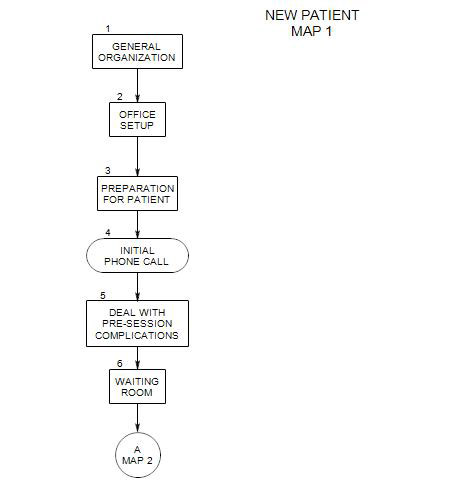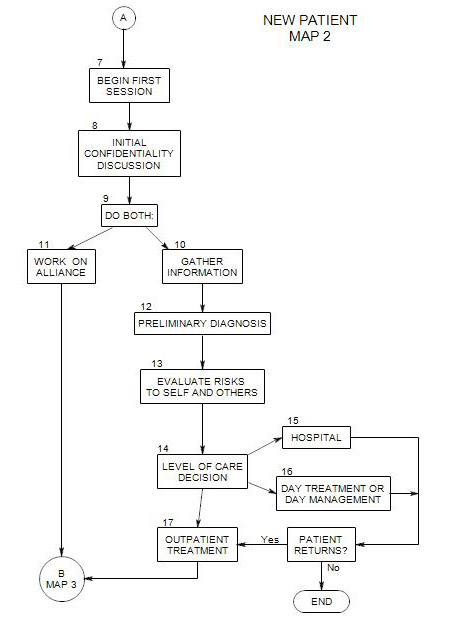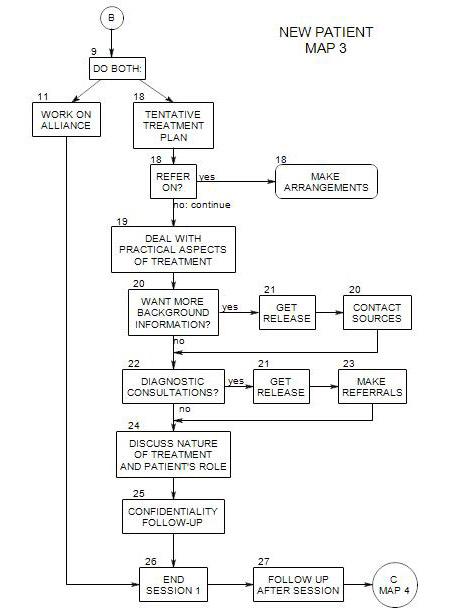Usually, there aren’t any.
However, sometimes something occurs between the phone call and the first session that must be addressed [Strean, 117-119]. The person may-
- call back with further questions about you, treatment, the conditions of treatment, the way you work, etc.
- call to change the appointment.
- call to cancel.
- fail to appear at the agreed-upon time.
- be late.
- appear with someone you hadn’t expected.
This list includes a variety of issues that must be handled in different ways. What they share is that you don’t know the person, you don’t know the reason for the person’s unexpected behavior, and you must deal with it in some way.
Any such behavior can be-
- a realistic reaction to external circumstances or a change in them.
- a resistance; which may also be thought of as an attempt to deal with internal anxiety and doubt.
- diagnostic, in that it reflects consistent patterns of behavior or ways of thinking about and dealing with oneself and the world, patterns that could eventually become a focus of treatment.
- either adaptive or self-defeating.
Further questions could be realistic and an attempt to start treatment on the right foot: the person could be supplementing incomplete information by-
- making sure he/she will be able to pay your fee.
- getting directions to your office right.
- verifying that what you do is what he/she needs.
Further questions could also be a sign of resistance, especially if we think of resistance as a way of dealing with anxiety. We should expect people to be anxious prior to the first session, for a variety of reasons. Gathering more information is one way of dealing with anxiety and associated doubts about the treatment.
And of course, the same question can be both realistic and a sign of anxiety.
Changing the appointment can likewise be done in reaction to external circumstances or to internal uncertainties and fears.
5a. Dealing with Initial Complications
Cancellation or no-show. Here, your options are limited. You don’t know the reason, and you have no real leverage with him/her.
You need to talk with the person. If he/she leaves a message, call back. If he/she doesn’t call, call.
Discuss the reason he/she missed the appointment. If it seems at all plausible, accept it for now: you have no basis for challenging it, and any attempt at interpretation could increase a person’s fears.
Ask if the person wants to make another appointment. If possible, make another appointment immediately
Reassure him/her about any fears of treatment.
References
Strean, 1985



